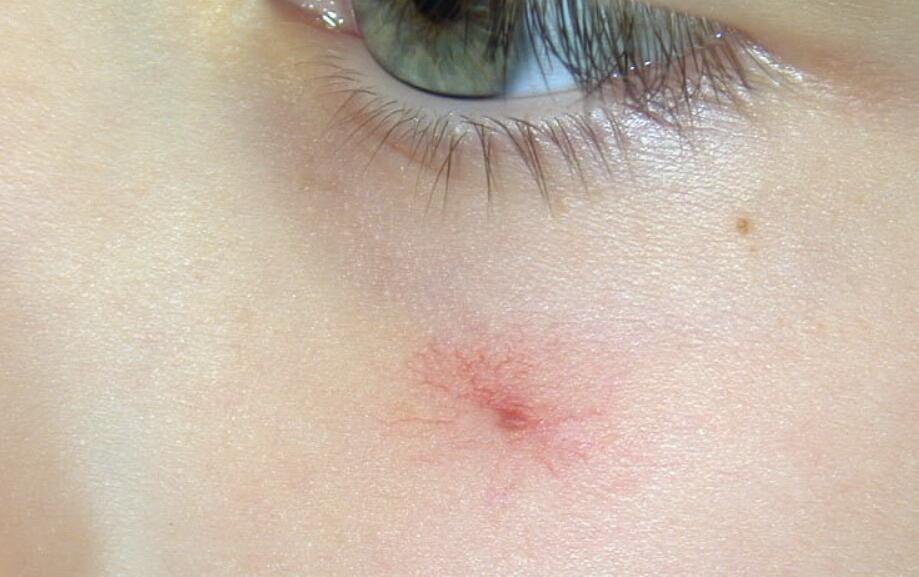Decoding Tiny Red Dots on Skin: Causes and Concerns

Have you ever noticed tiny red dots appearing on your skin and wondered what they could mean? These small red spots, sometimes flat, sometimes raised, can be a source of concern. This article explores the various reasons behind these pinprick-sized red marks, helping you understand their potential causes and when to seek professional medical guidance.
Pinpoint red spots on the skin, medically known as petechiae when flat and purpura when larger and raised, can stem from a surprising array of factors. Everything from a simple sneeze to underlying health conditions can contribute to their appearance. Understanding the different possibilities is crucial for determining the appropriate course of action.
The appearance of these tiny red dots, often resembling a sprinkling of red pepper flakes, can vary. They may be completely flat or slightly raised, and their color can range from bright red to a darker, purplish hue. Sometimes, they appear in clusters, while other times they are scattered randomly. The texture can also differ, with some feeling smooth and others slightly rough.
One of the most common causes of these minuscule red spots is minor trauma. Activities like vigorous coughing, vomiting, or even straining during a bowel movement can cause tiny blood vessels near the skin's surface to break, leading to the appearance of petechiae. These usually fade within a few days and are generally harmless.
Beyond everyday strains, certain medical conditions can also manifest as small red blood dots on the skin. These include blood clotting disorders, infections like meningococcal disease, and even certain types of leukemia. Therefore, if the spots are accompanied by other symptoms like fever, fatigue, or unexplained bruising, it's crucial to seek medical attention promptly.
Another common culprit behind small red dots, especially in older adults, is cherry angiomas. These bright red, dome-shaped bumps are benign skin growths composed of small blood vessels. They are generally harmless and don't require treatment unless they bleed or become bothersome.
Distinguishing between harmless red dots and those requiring medical attention is vital. While many instances are benign, it's always best to err on the side of caution. If the red dots don't disappear within a few days, multiply rapidly, or are accompanied by other symptoms, consulting a doctor is recommended.
If you're concerned about small red blood dots on your skin, consulting a dermatologist or your primary care physician is the first step. They can evaluate the spots, consider your medical history, and recommend appropriate diagnostic tests if needed. These may include blood tests to assess platelet levels and clotting factors or a skin biopsy to examine the tissue under a microscope.
Advantages and Disadvantages of Knowing the Cause
| Advantages | Disadvantages |
|---|---|
| Reduces anxiety by identifying benign causes | May increase anxiety if a serious condition is suspected |
| Prompts early diagnosis and treatment of underlying conditions | Can lead to unnecessary worry if the cause is benign |
Frequently Asked Questions:
1. Are all small red dots on the skin serious? No, many are benign and resolve on their own.
2. When should I see a doctor about red dots on my skin? If they persist, multiply rapidly, or are accompanied by other symptoms.
3. Can stress cause red dots on skin? Stress itself doesn't directly cause them, but it can exacerbate existing conditions.
4. What are the treatment options for cherry angiomas? Treatments include laser removal or cryotherapy.
5. Are petechiae contagious? No, petechiae themselves are not contagious.
6. How can I prevent small red blood dots on my skin? Avoiding excessive straining and maintaining good overall health can help.
7. Can allergies cause small red dots on the skin? Yes, allergic reactions can manifest as small red dots or hives.
8. Are there any over-the-counter treatments for red dots? Some topical creams may help reduce inflammation, but consult a doctor first.
Tips and Tricks:
Keep a journal of when the red dots appear, their location, and any accompanying symptoms. This can be helpful information for your doctor.
In conclusion, small red blood dots on the skin, while sometimes harmless, can be indicators of underlying health conditions. Recognizing the different potential causes, from simple bruising to more serious illnesses, is crucial. By paying attention to accompanying symptoms and seeking medical advice when necessary, you can address any potential issues promptly and maintain your overall health. Understanding the reasons behind these tiny red marks empowers you to take proactive steps towards ensuring your well-being. Early detection and appropriate action are key to effectively managing any underlying health concerns. Don’t hesitate to consult a healthcare professional if you have any concerns about changes in your skin.
Level up your game bowling dynamics pro shop phoenix
Soar through the stars exploring free online x wing games
Dive into the depths of blue lagoon pearl car color













